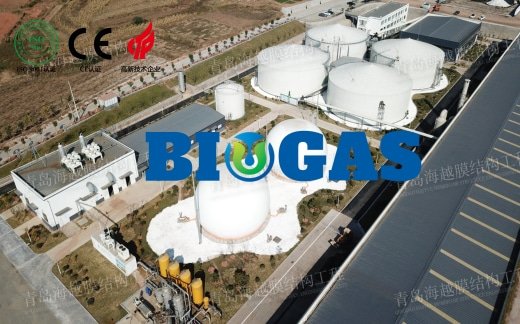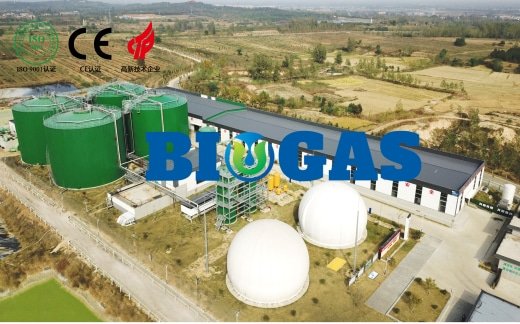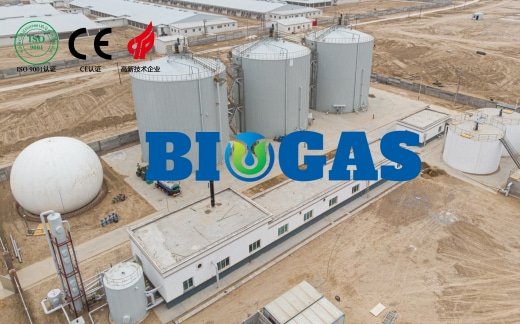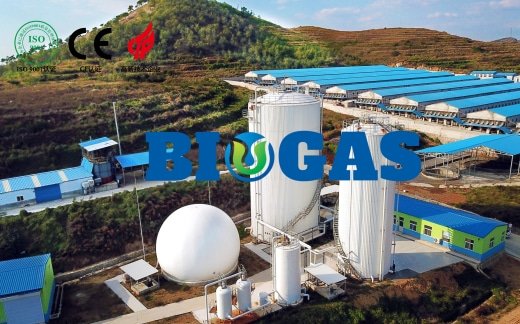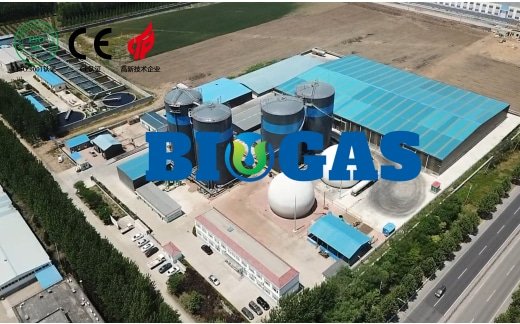Promoting biogas utilization is a major global trend in the development of clean energy
Grassroots cadres pointed out that historically, when the nation faced energy shortages, biogas naturally came to mind. In recent years, during the "environmental storm," biogas was once again considered. Moving forward, to promote the "toilet revolution" and build an ecological civilization, biogas should be prioritized once more. Experts believe that rediscovering and valuing the biogas industry aligns with global trends in energy conservation, emission reduction, and clean energy development.
Deng Liangwei, chief engineer at the Biogas Science Research Institute of the Ministry of Agriculture, along with other experts, unanimously agreed: "Biogas is a great resource, with far more functions than natural gas. Biogas not only produces clean energy, protects green mountains and clear waters, reduces greenhouse emissions, and lowers fossil fuel usage, but it also processes waste, such as manure and agricultural straw. It can advance the toilet revolution, solve rural non-point source pollution, and produce organic fertilizers, improve soil, and provide organic food. The social and environmental benefits are vast, far surpassing the economic gains."
Western developed countries that once came to China to study biogas technology have since surpassed China's technological advancements. Their development of large-scale industrialized biogas projects has expanded the applications of biogas, which now includes large-scale centralized gas supply (biogas for urban pipeline networks), gas-fired power generation (combined heat and power), vehicle fuel, and high-value-added products such as biogas fuel cells.
Germany's Energy Industry Act explicitly defines biogas as a fuel. By 2009, biogas from 100 biogas projects had already been integrated into the natural gas network. By 2008, over 4,000 biogas projects had been completed, accounting for 80% of all biogas projects in Europe, with an annual biogas power generation capacity of 8.9 billion kWh, making up 1.5% of Germany's total electricity generation. It is estimated that by 2020, Germany's annual biogas power generation will reach 76 billion kWh, accounting for about 17% of Germany's total electricity generation.
In Sweden, biogas is the fastest-growing renewable energy source. Since 1996, Sweden has been refining biogas for use as vehicle fuel, and it has successfully been used for cars and trains, making Sweden the most advanced country in using biogas as vehicle fuel. In Sweden, biogas accounts for 54% of gas fuel used in transportation, with the rest being natural gas.
In the UK, the Renewable Obligation Certificate (ROC) System was implemented in 2002. This system requires electricity suppliers to increase the proportion of renewable energy in their generation mix each year, with a target of 5.7% for the 2005–2006 period, rising to 15.4% by 2015. Among renewable energy sources, biogas is one of the most representative.
In the U.S., bioenergy accounts for the largest share of renewable energy development, though most research focuses on biofuels. The U.S. mainly utilizes biogas from landfill gas as part of its energy development. With a stronger focus on new technology development, the U.S. has begun testing biogas fuel cells as an alternative to traditional internal combustion engines for power generation.
Japan’s data reveals that by 2020, the biogas fuel cell market is expected to reach 8 trillion yen, making it a pillar industry for the country. Japan primarily uses waste, such as garbage and manure, for biomass power generation to address environmental pollution and energy shortages. The biogas fuel cell industry in Japan has already entered a practical stage and is at the forefront of global development.
In summary, based on international trends, biogas is poised to become a renewable energy source that will partially replace oil and natural gas in the future.
Qingdao Haiyue specializes in biogas equipment and has nearly 20 years of experience in the biogas industry. The company is committed to providing high-quality, reliable solutions for biogas
production and storage, helping to promote the use of clean energy and supporting sustainable development in various sectors. With extensive expertise and advanced technology,
Qingdao Haiyue is a leader in the biogas equipment field. If you have any needs, feel free to contact us.
